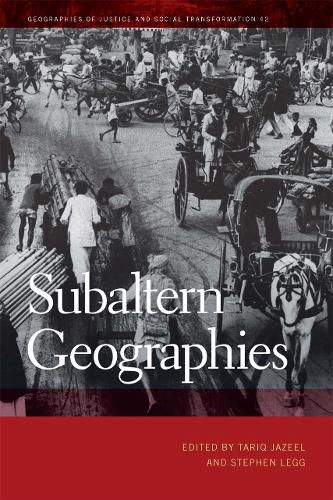Subaltern Geographies is the first book-length discussion addressing the relationship between the historical innovations of subaltern studies and the critical intellectual practices and methodologies of cultural, urban, historical, and political geography. This edited volume explores this relationship by attempting to think critically about space and spatial categorizations. Editors Tariq Jazeel and Stephen Legg ask, What methodological-philosophical potential does a rigorously geographical engagement with the concept of subalternity pose for geographical thought, whether in historical or contemporary contexts? And what types of craft are necessary for us to seek out subaltern perspectives both from the past and in the present? In so doing, Subaltern Geographies engages with the implications for and impact on disciplinary geographical thought of subaltern studies scholarship, as well as the potential for such thought. In the process, it probes new spatial ideas and forms of learning in an attempt to bypass the spatial categorizations of methodological nationalism and Eurocentrism.
Read More





